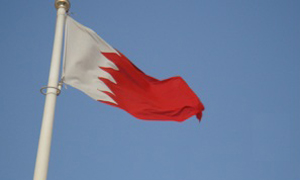
Fitch Ratings has affirmed Bahrain‘s long-term foreign currency issuer default rating (IDR) at “BBB” and its local currency IDR at “BBB+” and removed them from Rating Watch Negative (RWN). The outlook is stable. The agency has simultaneously affirmed Bahrain’s country ceiling at “BBB+” and short-term foreign currency IDR at “F3”. The resolution of the RWN and affirmation of the rating reflects Fitch’s view that the near term risks to the political and economic outlook have abated following the lifting of the state of emergency on June 1, 2011.
… genuine political reform would lead to a sustainable improvement in Bahrain’s political environment, with positive consequences for the fiscal and economic outlook and the rating.
Fitch expects high oil prices to lift the current account surplus for the year as a whole to 11.2% of GDP from 2.6% in 2010. The fiscal accounts are also set to benefit from higher oil sector receipts, which provided nearly 85% of Bahrain’s total revenue collections in 2010. However, Bahrain needs the increased revenue to mitigate the impact of the planned fiscal expansion under which current and total expenditure would rise by 33% and 18.5%, respectively, in 2011. This would cause the budget break-even oil price to increase to US$ 119 per barrel in 2011 from US$ 97 in 2010, increasing Bahrain’s exposure to future oil price shocks.
The deepening of social divisions would weigh on the budget beyond 2011 as the government tries to assuage them with higher social spending. The US$ 10 billion in aid from neighbors over the coming decade would reduce Bahrain’s financing requirements, but increase its dependence on its neighbors. Along with the near tripling of public debt levels to 46% of GDP in 2011, from 16% in 2008, these factors have materially weakened Bahrain’s credit quality since the beginning of the year, according to Fitch.
A substantial worsening in the security situation and Bahrain`s stability and/or a significantly larger deterioration in public finances than Fitch is currently projecting would result in renewed downward pressure on the rating. By contrast, genuine political reform would lead to a sustainable improvement in Bahrain’s political environment, with positive consequences for the fiscal and economic outlook and the rating.
The article above has been published as a part of Bank Audi`s MENA Weekly Monitor for Week 32 of 2011. It can be accessed via Internet at the following web address : http://www.banqueaudi.com